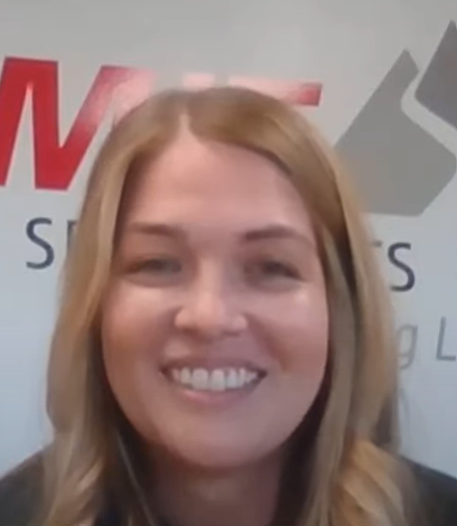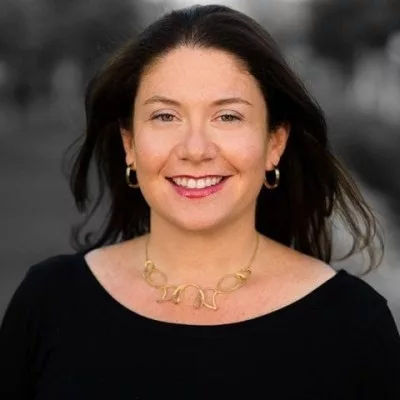Surgical Coordinator Spotlight: Cammie McKissick and Nicole Tovatt | SurgiSnacks Episode 8
Listen On :
Cammie McKissick and Nicole Tovatt, of Summit Orthopedic Specialists, chat with Rebecca Brygel, Founder and CEO of Surgimate, about their experience in the surgical office and coordination. There are ups and downs, but the impacts that Cammie and Nicole have made are impressive.
Related content:
Join us for SurgiSnacks, the podcast that delivers bite-sized insights into the world of surgical coordination. Hosted by Al & Justin of Surgimate, the surgical coordination software company, each episode features practical tips and best practices for streamlining your surgical practice, enhancing your profitability, and improving the patient experience. Subscribe on YouTube, Spotify, or Apple Podcasts.
Hello.
Welcome to today’s podcast about
our surgical coordinator spotlight series.
My name is Rebecca Brygel.
I’m the CEO and founder of Surgimate,
and I’m joined today by Cammie and
Nicole from Summit Orthopedic Specialists.
Welcome, ladies.
Thank you for having us.
It’s a pleasure.
This is our first time having
two people in one session,
so very excited to have you both.
Cammie, please introduce yourself.
Tell us about who you are.
Hi!
I’ve actually worked with Summit Orthopedics for about
ten years, starting at the front desk.
I am now a surgery coordinator.
I’ve kind of explored my way
through various departments in the office,
starting with referrals, patient access, so
answering phones, scheduling, regular appointments.
I’ve done some finance, doing out-of-pocket estimates
for procedures in office and out of office, and
then finally started with surgery about five years ago.
Surgery stuck, and I am now
the supervisor of the surgery department.
Wow.
I’m the director of administration here at Summit.
I’ve been here for the past five years, and
I have a huge passion for performance improvement.
So my focus is helping departments establish and achieve
their goals through a performance management system where we
solve problems and we continuously improve our processes, which
led me to our surgery team with Cammie.
Oh, wow. That’s wonderful.
So do you focus mainly on surgery, or do you
work in other areas of the business as well?
Yeah, so I started with surgery, but I also
work with billing, clinic, and patient access too.
Nice.
And so tell me, what aspect of surgical
coordination, Cammie, do you love the most, and
what do you find the most difficult?
The thing I like the most about surgery scheduling is
really just helping the patients, making the process as smooth
as possible for them from start to finish.
And, of course, the team aspect, working with
my team, overseeing everything, making sure that the
operations run smoothly on a daily basis. Things
that are difficult, challenges that we have:
having to cancel or reschedule surgeries due to various things,
people not being cleared for surgery or authorizations
not being approved for the surgeries.
So having to kind of work those around and
having to move patients up, fill those spots, keep
the schedules filled, that’s probably the biggest challenge.
Yeah, definitely.
I always say surgical coordination is
unlike other kinds of coordination, because
it’s not like a restaurant reservation.
You can’t just slot someone else in.
They need to know days in advance to stop their meds.
They have to have all the other paperwork in place.
So it’s kind of like a huge juggling act.
Exactly.
Yeah.
And what do you find,
do you have a good story for us about
without sharing any PHI, of course, but a
good story, a good surgical coordination story?
Not a particular story about a particular patient.
However, we were in a very
difficult position as the surgery department
a few years back. Nicole and I got the
opportunity to kind of revamp the whole department, build
a more solid foundation and leadership for that department.
Our utilization was down to probably about 60%
a few years ago, consistently with our facilities
requiring about 70% to 75% utilization.
And with the use of Surgimate, we have been
able to actually up our utilization to consistently 80
plus percent on a monthly basis now.
Oh, wow.
So when you talk about utilization,
you’re referring to block time.
Correct.
Nice.
Yeah.
We were at a point where our facilities were actually
getting ready to start taking block time away from us.
And then when we started with Surgimate
and getting the department reorganized, it actually
has helped us keep those surgeries scheduled
and continue to keep our block time.
And actually, our facilities have started reaching out to us
to ask us to add more block time now.
Oh, nice.
So they’ve developed more confidence in your
business because you’re able to schedule more
intentionally and with higher success rates.
That’s amazing.
Congratulations.
Thank you.
I’m glad to hear it.
Without focusing on Surgimate too much, though,
have you ever kind of noticed that there’s
no formal recognition for surgical coordinators?
Nicole, maybe I’ll take it over to like,
what do you kind of think of that?
Yeah, I did notice that.
I think for our team, it was really
important to highlight our performance and to start
tracking it and sharing it with the team.
So we win as a team, we lose as a team.
Everyone knows where we are on a daily basis, and when
we do reach our goals, then we can celebrate together.
So here at our practice, we
definitely recognize our teammates for that.
Wow, that’s so wonderful.
So you’ve kind of built in a system of
rewarding or recognizing the contribution that the surgical coordinators
have to the success of the practice.
Yeah, definitely.
That’s wonderful.
I always say some people say there are
less, but I say there are about 50
people involved in each surgery from varying degrees.
One person could just be giving you the
sticker when you go for a clearing test
and all the way to the other end,
the surgeon who actually performs the surgery.
There’s one person who’s keeping, holding all
of that together, and that’s the surgical
coordinator, making sure that everything’s done.
The clearances, the auths,
just as you mentioned before Cammie
and I always say there’s about
100 tasks involved in each case.
And if you’re booking, like, 50
cases a month, that’s 5,000 tasks.
Quite a bit.
There’s a lot that goes into each surgery. Definitely.
Yeah.
Do you think that’s right?
Do you think there are about 100
small tasks involved in each case?
From start to finish, I would say so, yes,
like you said, from various
aspects of the whole experience.
Yeah.
When we talk about metrics, we say often 25%
of cases get canceled or rescheduled and in my
mind, when you think about everything that has to
be done, I think that’s a miracle.
But only 25% of them have
to be canceled or rescheduled.
And that’s really because surgical coordinators,
I find, have amazing executive function.
Can you share, I know that
you have great executive function
just because we’re talking today and you’re in this
role, do you want to share any other areas
of your life where that’s really helpful?
Yeah, actually, I can say problem solving.
I’ve kind of advanced my skills in problem
solving, I would say, over the last few
years, especially as becoming a leader.
And I have kind of taken that into my personal
life and my personal relationships and been able to kind
of utilize my new problem-solving skills to kind of
work through issues in my personal relationships too.
Same. I think in my personal life, it’s
really helped me prioritize what’s important and what
needs attention first or what can wait.
So that way I have a little bit more balance too.
Yeah, like the laundry can always wait.
Yes, to a point.
Yeah, that’s my philosophy.
So do either of you have kind of a particular
story about a patient, of course, without sharing any PHI
or some kind of surgical coordination incident that you want
to share with me today?
So I don’t know if we have a particular patient, but
a lot of the time we do have urgent surgeries that
come up from irrigation and debridement where a patient needs to
go in and get an infection cleared out right away.
But we don’t have the block time
available within the time frame the surgeon
is requesting that it be scheduled.
So then we kind of have to work together as a
team and with the facilities to kind of problem solve that
and find a spot for them to go and kind of
work around the doctor’s clinic schedule as well.
So we have to work with basically almost the whole
office staff to figure out where to schedule this patient
in a time frame that is healthy for the patient
and what the surgeon wants as well.
Yeah, there’s nothing like and they always happen
at like, 04:00 just as you’re walking out.
Exactly.
Yeah.
My first job, I was a surgical coordinator, my uncle,
and he always loved doing the add-on at the
end of the day. It was always my favorite.
My father actually worked and was
his practice manager in Australia.
Doctors kind of usually worked solo,
at least back in the 90s.
Now it’s a little different, but there would always be
like a fight would erupt when my dad would be
like, “You can’t add on any more cases. It’s full.”
The patient sitting outside all
like, “What’s going on there?”
And I think kind of as we wrap up, do
you have any thoughts or feelings about how surgical coordination
is going to change in the years coming?
Maybe as you identified, it’s kind of changed.
Surgimate’s changed the way you’ve done it, I
guess, in the last few years.
Do you have any thoughts on what’s coming next?
Hopefully just more efficiency and transparency within
scheduling between the facilities and the offices.
I feel like a lot of the programs are
quite advanced and very user-friendly, so hopefully that
just continues and improves as time goes on.
Agreed.
I think that will continue to see technology advance.
When we have tools like Surgimate that help us
communicate between the facilities, the reps to our patients
and our EHR systems, it just helps us organize
and manage our surgery orders a lot better.
Agreed.
Very nice.
And if there was one thing you could
tell the world that was the hardest part
of surgical coordination, what would it be?
I’m going to stick with determination.
Just keep going, rolling with the
punches and just sticking with it
when you’re faced with obstacles and things become a
little bit more difficult than you expect.
I’m going to say learning from your mistakes
and not being afraid of them. Having that
culture with your team, that you can trust
each other and have a safe environment so
you can focus on continuing your processes together.
Right.
And that’s applicable to any job in healthcare,
in restaurant management, I mean, it doesn’t really
matter what it is that you’re doing.
When you can align with your team and set goals
and fix your processes, that’s a really wonderful thing.
So in Surgical Coordinators Day, we’re building this kind
of awareness around Surgical Coordinators Recognition Day for
all the wonderful work that surgical coordinators throughout
the U.S. do on every single day, including
weekends. It’s always happening.
And so at Surgimate, we just kind of want
to thank you for the time and investment and love
that you’ve given the patients over the years.
And we hope that the patients and the surgeons
and other colleagues continue to recognize you for all
the amazing, caring work that you do.
So thank you very much.
Thanks for meeting with me today.
Thanks for having us.
Thank you so much for having us.
It’s a pleasure.
Related Episodes
Surgical Coordinator Spotlight: Jacqueline Wertman | SurgiSnacks Episode 7
Labor Day Tribute: Celebrating the Unsung Heroes of Surgical Practices | SurgiSnacks Episode 6
MEET THE GUESTS


Nicole Tovatt is the Director of Administration at Summit Orthopedic Specialists. Her knowledge has improved Summit's efficiency and improved workflows throughout the organization.
Nicole Tovatt Director of Administration at Summit Orthopedic Specialists
MEET THE HOSTS

Rebecca Brygel
Founder and CEO of Surgimate
A career entrepreneur, Rebecca is the driving force behind the company and its visionary. She’s also super hands-on, as comfortable chatting with schedulers about their workflow issues as she is in the boardroom. Instantly recognized by her Australian accent, Rebecca holds a BA in Business Management from Monash University and a Masters in Philosophy from Yeshiva University.

Al Norweb
Chief Growth Officer
Al Norweb is focused on everything and anything that brings the power of Surgimate to more surgical practices. Al mostly recently served as the General Manager of Orthopedics for a leading EHR and practice management software company where he oversaw a near quadrupling of their book of business. Based in Miami, FL, Al holds an MBA from Harvard Business School, an MPA from Harvard Kennedy School, and a BS in Economics from Duke University.
be our guest?
Would you like to be part of our next podcast episode? If so please contact us for more details.









Cammie McKissick is the Supervisor of Surgery Department at Summit Orthopedic Specialists. Her rise and experience has improved the efficiency of Summit.
Cammie McKissick Supervisor of Surgery Department at Summit Orthopedic Specialists